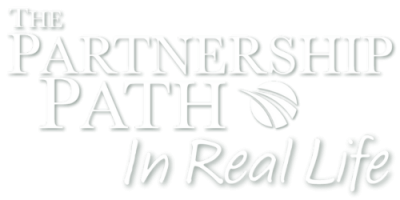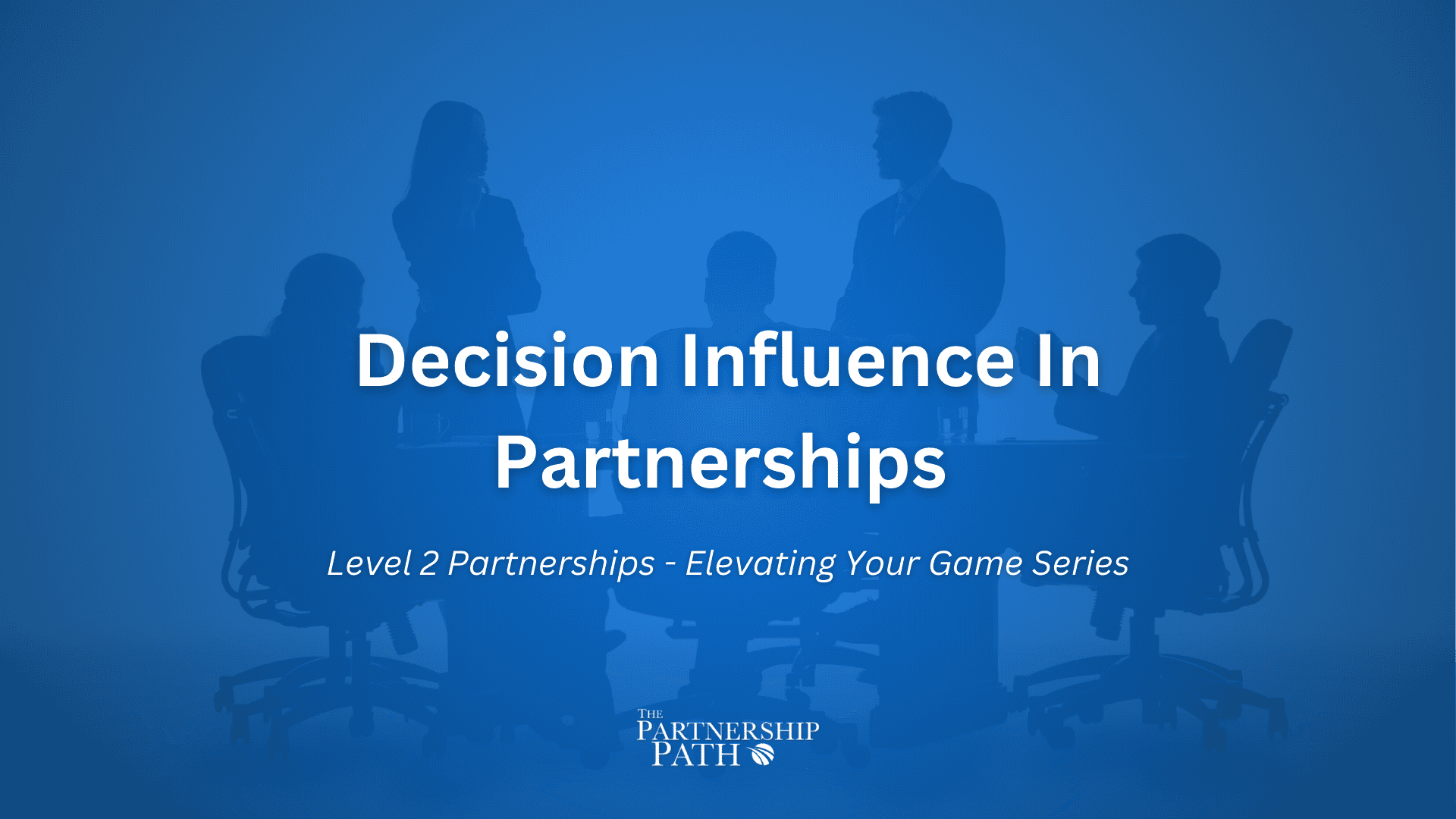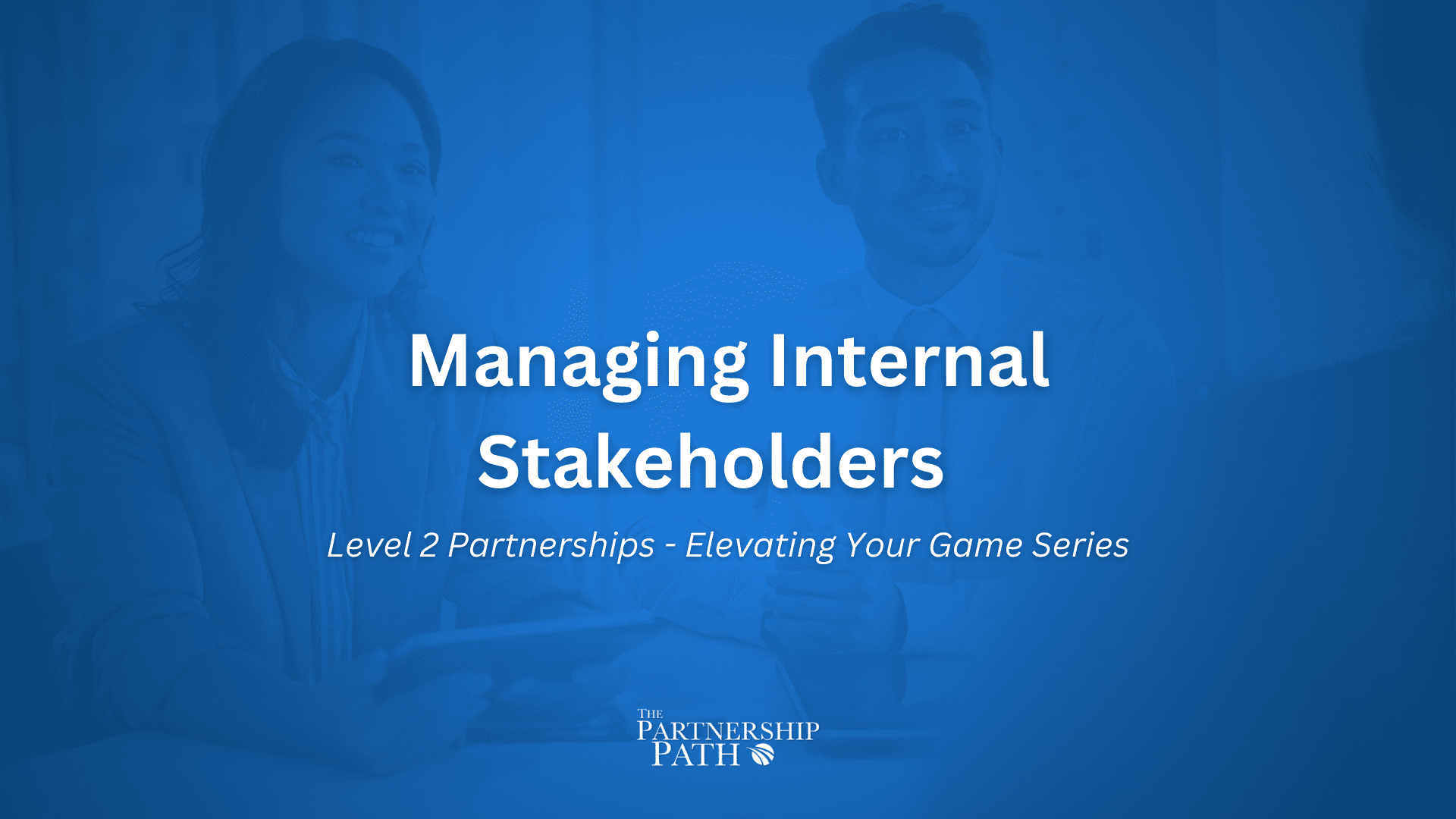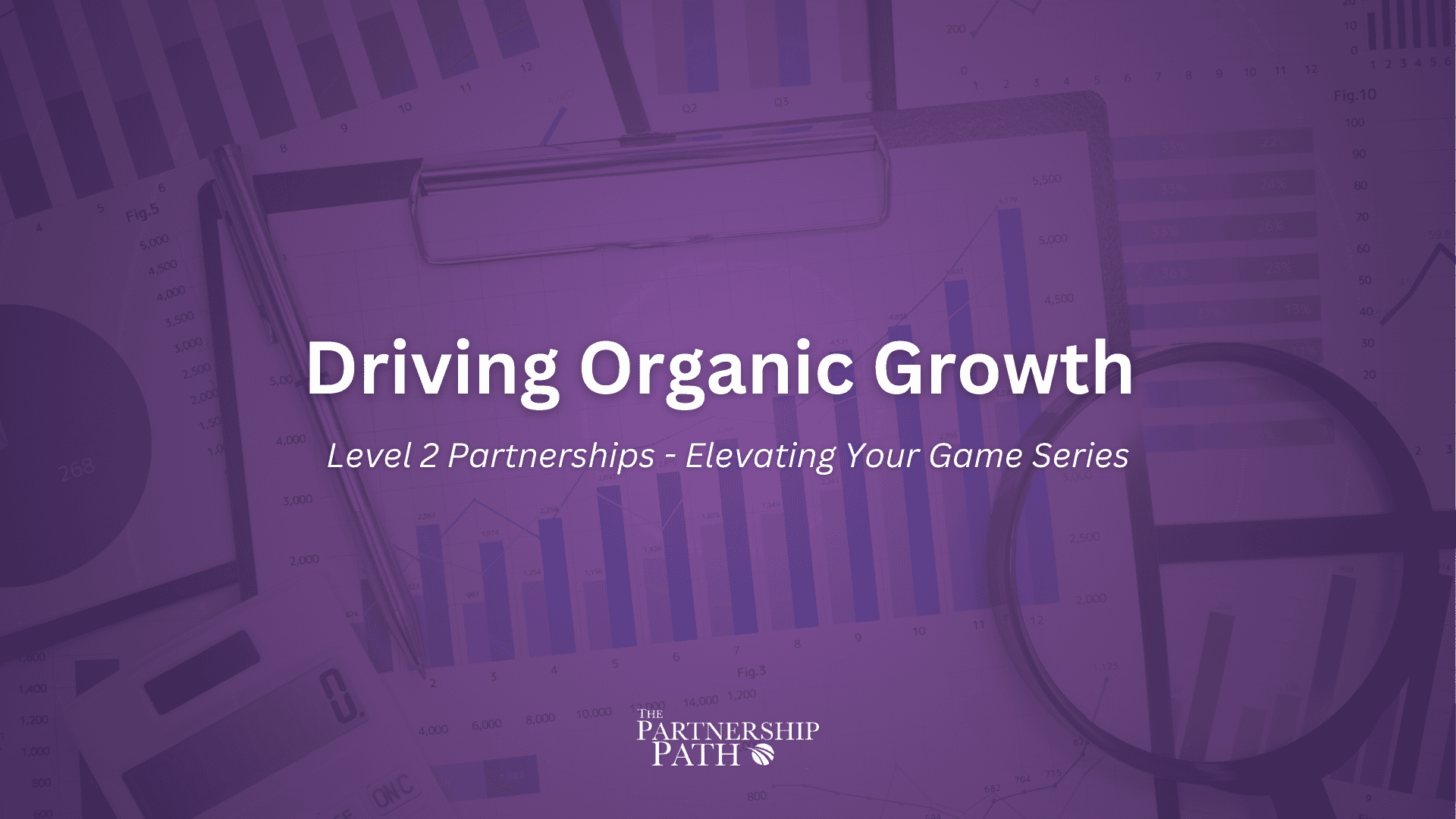IRL Episode
Jakob Maciolek at Microsoft on Decision Influence in Partnerships
Episode Summary
Ever wondered how big decisions are made in the corporate world, especially when multiple stakeholders are involved? Today, we have an exclusive peek into the mind of Jakob Maciolek, a leader at Microsoft driving the success of Copilot and Modern Work. Joined by John Rudow on The Partnership Path in Real Life podcast, Jakob unpacks the nuanced art of decision influence — a skill every business professional needs but few master.
This conversation is more than theory; it’s a practical masterclass in understanding motivation, navigating organizational dynamics, and wielding influence with empathy and strategy. I’m sharing this episode because it’s filled with golden nuggets for anyone managing partnerships, working in sales, or looking to sharpen their interpersonal skills at work. If you’ve ever found yourself thinking, “How do I influence this decision without authority?” — this is for you.
Transcript
John (00:01)
Well, good afternoon, Jakob. Welcome to the Partnership Path in Real Life. I’m super excited to have you on the podcast. We’ve talked about doing this a number of times, so I’m really glad we’re making it happen. Before we get into it though, let me give you a chance to introduce yourself to our listening audience.
Jakob (00:17)
Absolutely. Thank you so much, John. really appreciate it and we have been talking about it for a while, so I’m glad that we’re making it happen. So my name is Jakob Maciolek and currently I’m working at Microsoft. I’m accountable for the success of Copilot and Modern Work, so you’ve probably heard a lot about Copilot in the market, but I’ve been working for Microsoft for just under seven years. Prior to that, I was working for a number of different ISVs, both in Australia, can probably tell by my accent, and obviously in the Americas as well. So I’ve got a broad
John (00:43)
Ha
Jakob (00:47)
you know, spectrum of experience around ISVs as well as system integrators, but I’ve been working around the ecosystem for quite some time. So I’m happy to be here and I’d love to share some insights and some real world examples around the topic of decision influencing.
John (01:03)
Yeah, I can’t. So you teed it right up. I love it, Jakob. So yeah, we’re here to talk about this episode that Tony and I just did on decisions and decision influence and partnerships. I know you listened to the episode. let’s just start kind of wide open. What was it about that episode that, you know, resonated with you or kind of, you know, kind of tweaked your interest in terms of wanting to talk about it?
Jakob (01:28)
Yeah, so the first thing that resonated with me was Tony used the word reckon. So I reckon you’re going to have some great people on the podcast to reflect on this. so
John (01:34)
You
That’s right. Now that you live in Texas, especially, right?
Jakob (01:40)
Yeah, absolutely. Exactly. So I think, you know, it was really around trying to figure out, you know, who is making the decisions and are they the right decisions being made and also what the alternatives are. I love how you explored that together. And I think, you know, for me, when I work with partners and, know, I try to understand what really motivates them. I think that’s number one is understanding what is motivating not only the person that you’re working with and the individual that you’re
John (01:52)
Yeah.
Yeah.
Jakob (02:08)
trying to influence or you’re being influenced by, but what motivates them as an individual, but how does that tie into the company, right? What does that tie into the company goals and the objectives? And so I think…
John (02:17)
Right, right.
Jakob (02:22)
When you try to understand those things and you said something really, really good was like, you know, asking the right questions, but also listening in and trying to understand as you’re having these meetings, as you’re having these conversations, you’re really trying to, hear for those indicators. And, sometimes things can get a little bit hush hush, right? If there’s a specific individual that you’re working with that may like close up around a topic.
John (02:46)
Right.
Jakob (02:46)
I think that’s you start to understand, okay, there may be some other alternative initiatives going on here that may be impacting our longer term goal or our longer term strategy.
John (02:56)
Yeah, you know, I’m always kind of fascinated by people who don’t do what we do, who don’t realize how much sort of interpersonal psychology, analysis, all that really goes into doing what we do, right? Of really kind of helping people solve problems. like, mean, life is complex. People are complex. And decisions
Jakob (03:16)
Yeah.
Yeah.
John (03:25)
are really complex because there’s lots of people involved. so, yeah, mean, that’s that whole skill set of being able to figure out what’s really going on. It’s something you really got to work at in this job to be good at
Jakob (03:35)
Yeah.
Yes. Yeah, absolutely. And I think that, you know, when you, when you think about your, your stakeholders that you’re working with, right. And whether they’re executive stakeholders or they’re kind of a little bit lower down on the totem pole, I think you start to realize and recognize some commonalities between, you know, the, answers that they’re giving you. But I like to really approach it. And you said this during the episode, approach it from a place of empathy and understanding, okay, if I was in this person’s shoes, what would I want to achieve?
John (04:08)
Yeah. Yeah.
Jakob (04:09)
And you can extract that from them by asking the right questions, but also just being along for the journey with them. So being alongside and seeing how they interact with other folks and seeing how they operate with their day to day. And you start to get a bit of a landscape across the business by again, experiencing that together, but also understanding what those personal and professional motivations are. One thing I wanted to touch on is
John (04:34)
Yeah.
Jakob (04:37)
When you ask the questions, and this is kind of some of the experiences that I’ve had, is like when you start to ask the questions, the answers that you get will often give you an indicator for what that person is trying to achieve. And whether that’s like an activity-based outcome or it’s actually a more business-focused, broader outcome, based on the scope of the answer, whether it’s super deep or it’s very shallow,
that starts to then give you an indicator, OK, this is a person that can actually influence these decisions within this organization based on the depth. Are they giving you answers that are more focused on their personal success and their personal goals? Like, for example, I need to go get 100 leads out of this event, or I need to go get 50 meetings scheduled at a particular conference, for example. If you look at those and then you’re
John (05:11)
Right. Right.
Yeah. Yeah.
Jakob (05:33)
you start to ask the same question to other individuals and they then give you a more expanded answer. For example, like, I need to go get a hundred leads. That’s going to then drive X amount of revenue for our top line, which will give us the ability to exit or sell the company off or do whatever we need to do in a three year time period. So that kind of longer term time period that people give you will also give you that sense of, are you influencing the right people?
John (05:45)
Right, Yep.
Yeah.
Jakob (06:03)
Because that’s what it really comes down to. What are the real decisions being made, right? And then who’s involved in those decisions? And again, you mentioned this before, but what are the alternatives?
John (06:04)
Totally.
Yeah. Yeah. And that, it touched on a whole bunch of stuff there, Jakob, that I love. one of the first things is really around, understanding the different ways people are motivated. Right. I think, you know, we, we try and, we try and help people sort of categorize that, right? Like, is it, what do you know about their business motivators? Like what, what is it that’s motivating them in their job?
Jakob (06:27)
Yeah.
John (06:39)
versus their personal motivators, right? Sometimes people wanna get things done a certain way so that they can work less hours or so that they can spend more time with their family or so that they can get personal recognition even at their company, right? And then there’s what we typically call kind of political motivators, which that’s not really the right word, especially in today’s highly politicized world. What we mean is organizational.
Jakob (06:48)
Yes.
Yeah.
Yes. Yeah.
John (07:08)
politics, right? Like, is there a promotion that they’re trying to get? Is there a movement from this company to another? And those are all hard and they kind of blend together, right? And so there’s that paying attention to how they answer to your point, asking the right questions and then being prepared to ask another question to get some clarity on that is super important. Yeah.
Jakob (07:09)
Yes.
Yeah.
Yes.
Yeah, Yes, absolutely. And, you know, to that point around making sure that you understand the answer and then you really then have that follow on question. One of the ones that comes to mind is that like when you ask people, let’s say we’re meeting together and we’re reviewing our partner plan for the next 12 months and then you say, okay, well, in 12 months from now, we’re going to meet again and we’re going to look back at our partner plan and
You know, our leadership teams and our investors are going to ask us, Hey, did we partner well together? Right? Did I and B company partner well together? And a lot of times people are going to say, well, yes, absolutely. We did partner well together. And then the question I love to ask is, well, well, how, how did we partner well together? Did we achieve a certain set of outcomes? Did we, you know, penetrate a new market or a new industry? And if, if you ask that question to them and then they’re unable to really.
answer that or they haven’t thought of that, that quickly then tells you, well, they haven’t really thought that far ahead. They haven’t actually thought, okay, where am going to be from 12 or 24 months down the line with this partnership? And that may give you an indicator of, okay, this person might only be around for six months or 12 months or less, right? And so I’d definitely like to ask those questions and how people feel about, you know, the partnership in general, partnerships that we’re working with in general. But yeah, definitely.
John (08:28)
Yep, that’s right.
Yeah, yeah.
Jakob (08:54)
Definitely helping those folks either help you get connected to the right people or help them learn internally. Because maybe they haven’t actually thought about that. They could be the right person, they just haven’t thought about that. So you can then go on that journey together to learn that within their business.
John (09:02)
Right. Right.
Yeah. Look, Jakob, what we try and do on these episodes is give people like little tips and tricks, right? That they can take away. And so I love what you just talked about, that example question of, hey, here’s what I like to do, right? I like to ask this question, you know, in advance to say, hey, a year from now, this is what it’s going to look like. How would we answer it in a year from now? That’s super revealing. Like, that’s a super cool question to ask.
Because it does, it tells you all kinds of stuff about the person you’re talking to and about the business that you’re trying to engage in. I love that.
Jakob (09:47)
Yes, yeah, absolutely. And I think that when you’re working with different stakeholders and you start to identify and understand, you know, how are they going to show up in their organization and how are they going to show up to their leadership? know we kind of touched on that a little bit around investors as well as board members and other C-suite leaders within the company. I think if their personal motivation is about
look, I need to show up really well to our leadership team to gain the investment or gain the resources that we need to make this initiative a success. I think it’s 100 % okay to, you know, a lot of people in that I’ve seen operating the partner world may look at that and go, well, that’s not my job, right? That’s not my job to help them look good, but actually going in and helping them review their slides or their talk track, or even just kind of.
John (10:30)
Yeah, yeah, right, right.
Jakob (10:40)
role-playing in those scenarios and helping that person not only show up really well but it’s it’s one one tip I’d say is that it’s okay to Hand off a really good piece of work that you might be proud in to allow someone to go and take that recognition and that can be internally or externally at the partner that’s completely fine because then that person’s gonna it’s gonna help achieve their goals and your goals are gonna come so
John (10:42)
That’s right.
Absolutely.
Yeah. Yeah.
Yeah. Yeah.
Jakob (11:08)
That’s the way I like to think about it, is like, how do we achieve their outcomes?
John (11:10)
Wow. I love that. Look, you’ve keyed in on, this is something we didn’t even get into in the episode with Tony and I, right? We talked about analyzing the decision, kind of figuring out who’s really making the decision, trying to figure out who influences who. But what we didn’t talk about, which you’ve just provided great insight into is, okay, then how do I insert influence into that process? How do I help that person who’s making the decision?
Jakob (11:26)
Yeah.
John (11:40)
achieve whatever it is that they’re trying to do because that will influence them to potentially go the way I want them to go. And understanding, I just love it. And having worked with you, Jakob, I know that this is at 100 percent how you operate. Right. Which is helping someone else be successful is only good for you. Right. Whether you get credit for that directly or not isn’t the point. Helping someone else be successful matters a lot.
Jakob (11:47)
Exactly.
Yeah.
Exactly.
John (12:10)
And ultimately, that will come back around to you. yeah, just I love that example. That’s super cool. And like I said, I know that’s how you operate. So yeah.
Jakob (12:17)
Yeah. Yeah. Thank you, John. I appreciate it. I mean, I think just like if you look at it from the perspective of, okay, ask yourself, am I asking the right questions, right? Which we talked about. And then am I asking those questions of the right people? Okay. And then it’s, it’s, what’s the follow-up? What’s the then what, happens after that? And again, going back to that point of helping that individual along that journey or that group.
John (12:35)
of the right people, yep.
Yeah. Yeah.
Jakob (12:46)
along that journey is really rewarding, not only for them and all the people involved, but it’s super rewarding for yourself because you actually see how your efforts and the time that you’re investing is actually resulting in helping others and helping our customers and our mutual success.
John (12:58)
That’s right.
Yeah, putting all of that, just understanding the importance of the why question, right? Which is, so tactically, pragmatically, here’s what Jakob and I are trying to do together. And yeah, we got to do this blocking and tackling. We got to do these tasks or these activities. But why does that matter to Jakob?
Jakob (13:13)
Yeah.
John (13:30)
What’s motivating Jakob to really want to do this in this particular way for me to then go, right, okay. That means I should take this little different approach to that so that Jakob actually gets what he needs out of this. Like as simple as that sounds, it’s way harder to do in real life, right? And it requires you to constantly ask yourself that question. Why, why, why? Why are they doing that? What matters, right?
Jakob (13:30)
Yeah.
Yeah.
Yeah.
Yeah, yeah, it requires a lot of that and also a lot of self reflection. You know, actually, you know, I like to say to the folks that I work with is that time is the only non refundable resource that we choose how we get to invest. Right. And so invest it wisely and also reflect on how you’re investing it.
John (14:00)
Yeah.
Yeah, that’s right. Yeah. Yeah.
Jakob (14:16)
And so building in kind of those checkpoints with the people that you’re interacting with is great, like having weekly one-on-ones and ROBs and all that good stuff and quarterly reviews and annual reviews, but also investing time in yourself to actually look at, okay, we just spent three hours on this project or this initiative. And did I ask the right questions? Did I put myself in the shoes of them? Did I?
John (14:22)
Yeah. Yep.
for sure.
Yeah. Right.
Jakob (14:42)
look at the actual people who are investing resources into this initiative. If I were them, would I be happy with the outcome? So I think it’s that mindset that, you know, it’s something that’s inherent to some people, but a lot of the time you need to really learn and understand how to think that way.
John (14:49)
Yep. Yep.
That’s right. And I know for me, having been in this kind of a business for 30 plus years, it takes constant diligence. Like you can be really good at this and really easily slip back into the old ways of, that’s too much work, right? Because it does take work. does take discipline to pay attention and to care about what’s really happening. And so it’s not something that you master and then you’re good.
Jakob (15:18)
Yeah.
Yeah.
John (15:31)
Like it’s a constant refinement process, I think. Yeah. Yeah.
Jakob (15:31)
Yeah.
Absolutely. Yeah. And it’s always about learning, right? And then as you start to engage with those decision makers and decision influencers and, and, really be open to learning from them as well, because as you start to learn and build up your, your skillset of, interactions and, and, you know, making sure that you’re structuring meetings the right way and, just using technology like, like copilot to do things like, you know, record meeting notes and
John (15:47)
for sure.
Jakob (16:02)
put things together and be able to recap as you approach different topics. think that leveraging the technology that we have and that self reflection combined together, the future is super bright.
John (16:14)
It’s exciting and daunting all at the same time, right? Look, Jakob, we try and keep these episodes as short as we can. We want people to have a quick listen to be able to kind of listen in on their way to work. So I’m going to pull this to a close. Thank you so much for coming on the show, sharing some of your perspective and advice. Absolutely love it. Some really good takeaways from this one. I really appreciate it. And I hope.
Jakob (16:19)
Yeah.
John (16:41)
I hope we can have you back on another in real life episode sometime.
Jakob (16:45)
Yeah, absolutely. I’d love that. Thank you so much, John. Again, I appreciate the time and I’m glad we got to do this. And hopefully, you know, the conversation conversation helps those out there to to achieve more.
John (16:55)
Yeah, take one more step. Thanks, Jakob.
Jakob (16:58)
Brilliant. Thank you. Have a good one.
Key Takeaways
- The Power of Empathy in Influence: Influence isn’t just about logic and data. It’s about understanding personal, business, and political motivations.
- Ask the Right Questions, Then Go Deeper: Surface-level answers only scratch the surface. Ask follow-up questions to understand deeper motivations.
- Invest in Others’ Success: Help others achieve their goals, and you’ll naturally become a trusted partner in decision-making.




